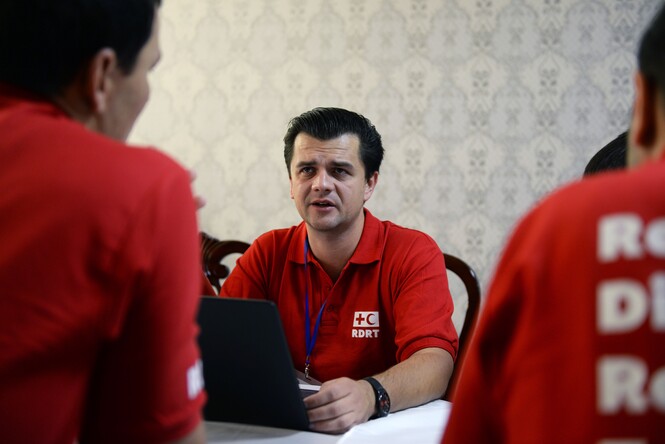
Accordingly, at a regional workshop on IDRL held in Almaty last October, Gani Kassymov, Deputy of the Kazakhstan Senate, member of the Committee on Foreign Relations, Defence and Security emphasized the importance of improving legal preparedness for disaster cooperation. “Cooperation and mutual support between the countries in the region are crucial. The profile of Red Crescent Societies and the awareness of their mission and roles in each country before disaster strikes also need to be strengthened,” he said.
To assist the authorities to better prepare themselves, the Kazakhstan Red Crescent Society (KRC) and the IFRC have launched a new technical assistance project to support the authorities in examining their current legal preparedness for international disaster assistance. As part of this effort, the Norwegian Red Cross (NRC) is also providing technical advice on the basis of its own domestic work on IDRL. “We consider it a significant step in the broader promotion of IDRL for there to be cooperation between National Societies in such projects,” affirmed Simon O’Connor, NRC Legal Advisor.
According to the KRC’s project coordinator, Bolat Altynbekov, the research may also have benefits for domestic response. “One of the current challenges is that in case of a disaster striking a region, regional authorities would have to report the state’s administration and wait for its instructions and response,” he noted, “The idea of our project is thus to encourage legislative changes taking regional needs into consideration and strengthening means of action at the regional level. In addition, of course, we want to contribute to the improvement of inter-state cooperation in the region.”